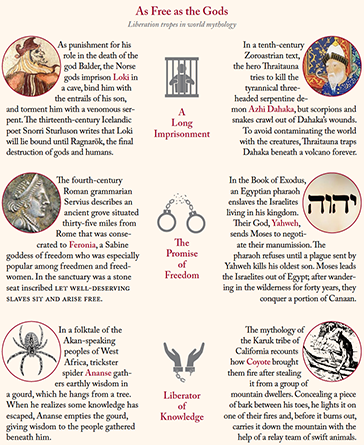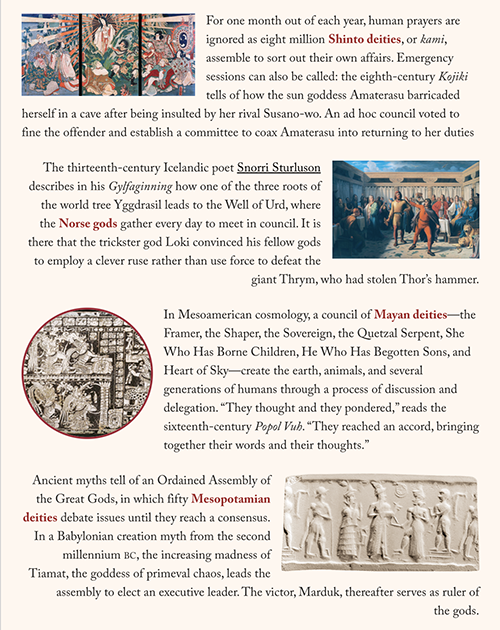Miscellany
A fourteenth-century-bc peace treaty recorded on a cuneiform tablet contains an invocation to Mithra, the Indo-Iranian god of the sun as well as of oaths and mutual obligation. In the Roman Empire, Mithras was honored as the god of loyalty to the emperor, while in Indian Vedic texts, he represents friendship and benevolence and, along with the god Varuna, is entrusted with the maintenance of the gods’ essence.
Miscellany
In the Finnish runic epic Kalevala, Loviatar, the daughter of the god of death, is impregnated by the wind and gives birth to nine diseases: Consumption, Colic, Gout, Rickets, Ulcer, Scab, Cancer, Plague, and an unnamed disease, “the worst of the nine,” who is banished by his mother “to bewitch the lowland people, / to engender strife and envy.”
Miscellany
“By its policy,” wrote Vitruvius between 30 bc and 15 bc, the Roman Empire “curbs the courage of the northern barbarians; by its strength, the imaginative south. Thus the divine mind has allotted to the Roman state an excellent and temperate region in order to rule the world.”
Miscellany
In 2012 a revenue office in Uttar Pradesh received an official-looking notice addressed to the Hindu storm god Indra, ordering the deity to provide written justification for a drought caused by insufficient rain during that year’s monsoon season. “If the Lord fails to give a satisfactory explanation within the stipulated period,” the notice warned, “it will be presumed that he has nothing to say, and stern action will be taken.”
Pages




